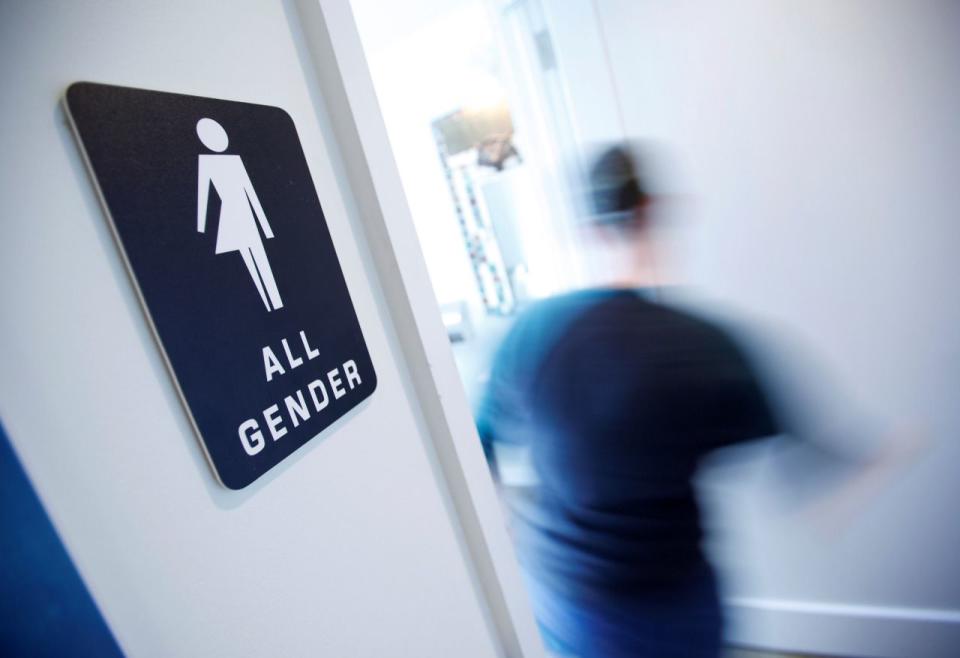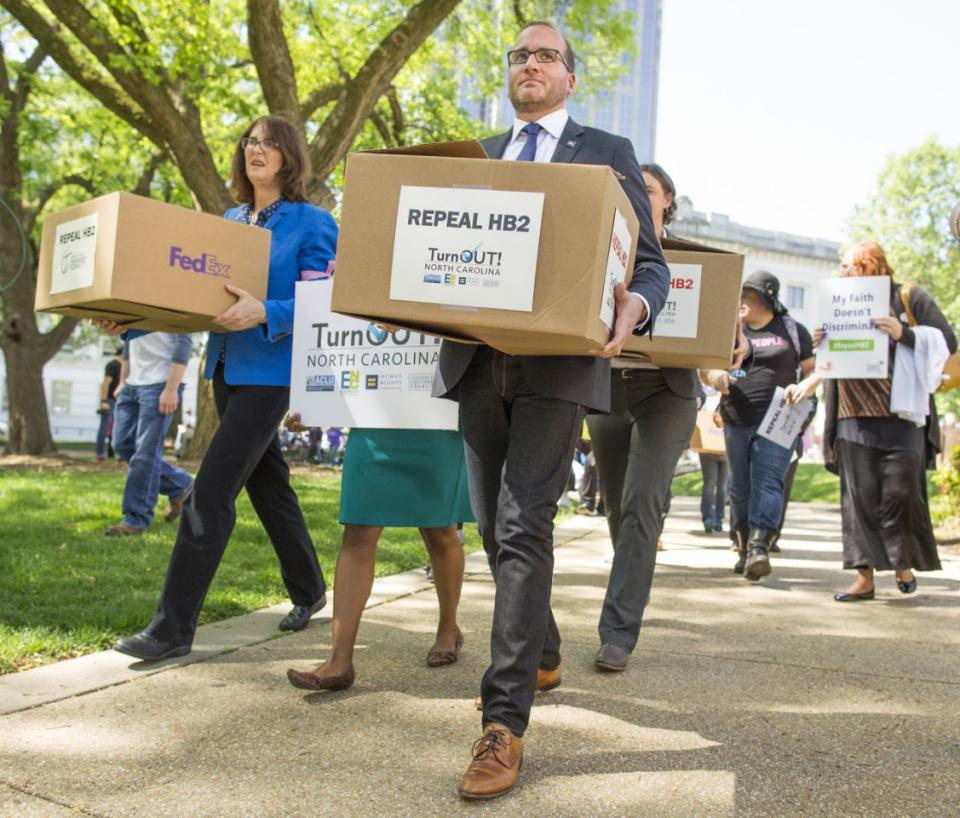16 places that shaped the 2016 election: Charlotte, N.C.

By Nov. 9, the votes will have been cast and counted, there will be a winner and a loser, and the country will begin a slow return to normal. Historians will have their say on the outcome, but all of us who have lived through this election will carry away indelible memories of a shocking year in American history: of a handful of ordinary people, swept up in the rush of history; of a series of moments on which the fate of the nation seemed, at least briefly, to turn; and of places on the map that became symbols of a divided nation. As we count down to Election Day, Yahoo News has identified 16 unforgettable people, moments and places.
There are certain issues that seem fixed in the political firmament. Wake a Republican at 3 in the morning, and he won’t have any trouble remembering that he’s for lower taxes. Or try to find a Democrat who isn’t in favor of “expanded access to health care.”
But other issues are moving targets, causing no end of trouble for candidates as they scramble to fine-tune positions before they seem hopelessly out of date. Take gay marriage, a question on which President Obama famously “evolved” while in office to stay abreast of the rapidly changing social climate. This year, trouble came from an issue that was barely on anyone’s radar screen a few years ago: the treatment of transgender individuals in “places of public accommodation” — a phrase that in principle covers stores, restaurants and public transit, but is mostly a polite way of saying “bathrooms.”
Perhaps inevitably, this came to a head in North Carolina, a traditionally Republican primary state but one that has grown more Democratic with an influx of tech and knowledge workers from other states. The impetus was a local ordinance in Charlotte that expanded existing antidiscrimination protections to LGBT individuals, making it illegal to refuse them service as customers. That was a controversial proposition in a Deep South state all by itself, but what made it a rallying cry for Republicans was a provision allowing people to use the bathroom of their self-assigned gender: i.e., transgender females, born male, could use women’s bathrooms — and vice versa, although that scenario elicits much less outrage.
The issue was considered so urgent that the Republican-controlled Legislature passed a bill within a month to invalidate the rule. And it went even further, outlawing any extension of civil-rights coverage beyond the state-recognized categories, which include the usual (race, religion, age and so on) but not sexual orientation or gender identification. While businesses were free to set their own policies, they couldn’t be forced by local ordinance to cater a gay wedding or serve a customer who didn’t meet their notions of gender-appropriate dress.

Republicans were in a bind, caught between their constituents’ wishes — or their personal religious beliefs — and the suspicion that they were taking a stand on an issue that most Americans either didn’t care about or thought was loony. Their position was made even more uncomfortable by opposition from big business and a boycott that led the NBA to move next year’s All-Star Game from Charlotte.
The issue posed no problem for Democrats, whose convention roster included Sarah McBride, the first transgender speaker at a major-party nominating convention. But it was a tricky one for Donald Trump, who has courted the religious right and chosen as his running mate Indiana Gov. Mike Pence — a Christian, a conservative and a Republican, in that order, as he likes to say — but still couldn’t shake the perception that “family values” issues aren’t especially close to his heart. He rarely brings them up at his rallies, and he famously invited Caitlyn Jenner to use whichever bathroom she chose at Trump Tower.
Trump characteristically analyzed the issue in terms of marketing; anything that provokes a boycott has to be bad. “There have been very few complaints the way it is,” he said on April 21. “People go. They use the bathroom that they feel is appropriate. … And the problem with what happened in North Carolina is the strife and the economic — I mean, the economic punishment that they’re taking.”
In an interview with Sean Hannity the next day, he seemed to amend that position, taking refuge in the one-size-fits-all-Republicans answer that “the federal government should not be involved.” “Local communities and states should make the decision,” he said, staking out a forthright position that elided the entire problem, namely that the “local community” and the state were on opposite sides.
By July 5 he signaled a complete reversal of his earlier position, announcing that, boycott be damned, “I’m going with the state, they know what’s going on.” — By Jerry Adler
House Bill 2 — North Carolina’s anti-LGBT bathroom law
A look at the battle raging in North Carolina over Governor Pat McCrory’s HB2 legislation, from his supporters to the gay rights protesters against the bill. >>>
North Carolina attorney general won’t defend transgender law: It’s “a national embarrassment”
In March, attorney general Roy Cooper — now the Democratic candidate for governor attempting to defeat McCrory in the state’s gubernatorial race — explained why he wouldn’t defend HB2. >>>
Transgender rights: Where the candidates stand on bathroom bills
A rundown of the positions of all the 2016 candidates on legislation like HB2. >>>
Donald Trump shifts position to support HB2
After initially speaking out against the bill by saying it could hurt business in North Carolina, the Republican nominee changed his position to support the state’s decision. >>>
The @NCAA is right to pull tournament games from North Carolina because of the anti-LGBT HB2 law. Discrimination has no place in America. -H
— Hillary Clinton (@HillaryClinton) September 13, 2016
We need to say with one voice that transgender people are valued, loved, and deserve to be treated that way. #TDOR pic.twitter.com/RGU9XjMwra
— Hillary Clinton (@HillaryClinton) November 20, 2015

 Yahoo Sport
Yahoo Sport 











































